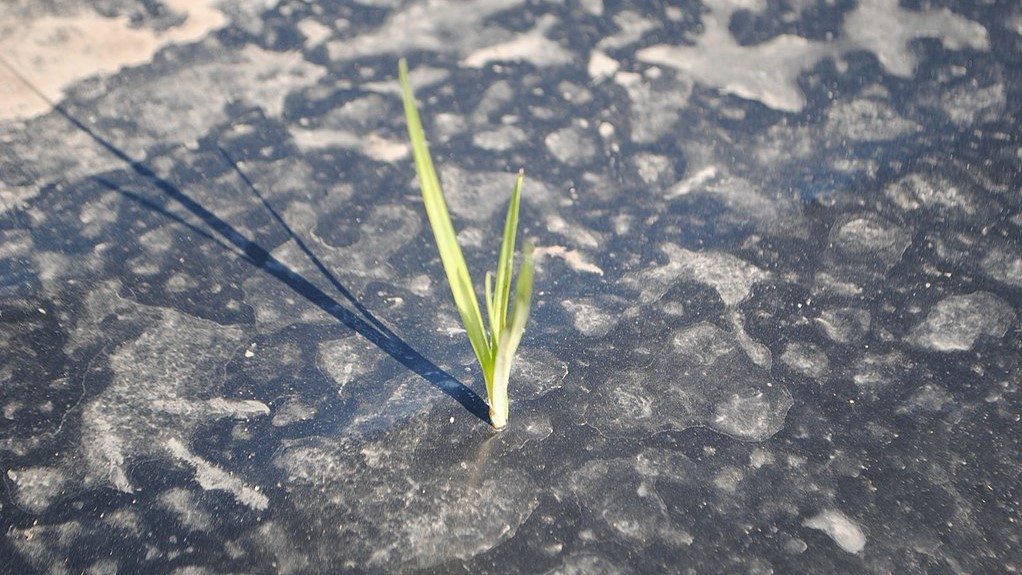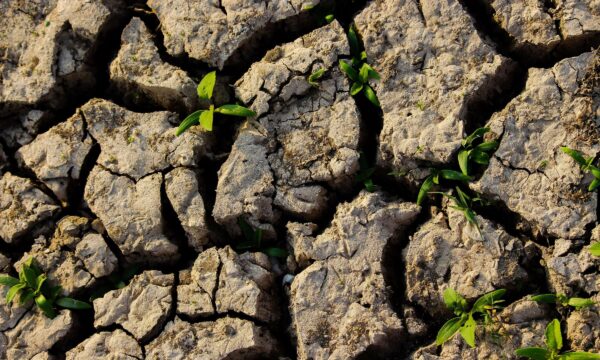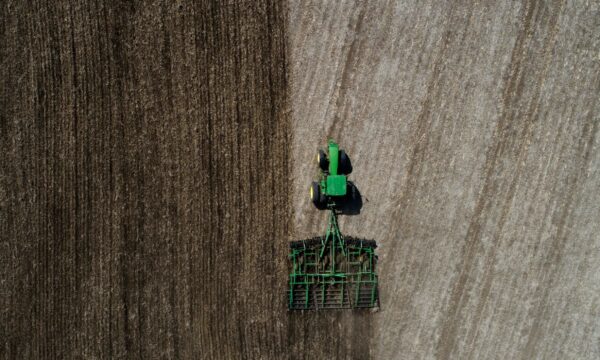Plastic debris could harm crop health in long term

Plastic mulching involves the use of thin plastic sheeting to conserve moisture and boost temperatures in soil. Commonly used in arid, cooler climates such as China, it has been shown to improve crop health and yield. With water conservation becoming an increasing global priority, plastic mulch use has expanded dramatically in recent decades.
However, a new study led by researchers at the Chinese Academy of Agricultural Sciences indicates that these benefits to crops may be transient. Farmers often fail to remove plastic mulch at the end of the crop season, allowing the plastic sheeting to break down and accumulate in the soil. In the long term, this plastic debris may affect the health of the crop and the safety of the food produced.
The study included two components. The first involved using data from 110 peer-reviewed studies to carry out a global meta-analysis of the positive and negative impacts of plastic mulch on crop growth and yield, as well as soil temperature, moisture and chemistry.
In the second component, the team measured the amount of plastic debris in soil sampled from 721 cropland sites across China. Crops surveyed included cotton, peanut, maize, vegetables, potato, tobacco, wheat, sunflower and soybean. The researchers also captured data from farmers such as the type and volume of plastic mulch used, how long the crop is covered, and methods used to recover the plastic film at the end of the crop season.
The meta-analysis showed that when the soil is contaminated with low levels of debris, the benefits of plastic mulch outweigh the negative consequences. However, crops grown in soil containing large volumes of debris exhibited lower yield, height and root weight. The debris also altered the structure and chemistry of the soil, reducing soil organic matter and phosphorus content.
Cotton crops were the worst affected. As a cash crop, cotton is often covered with plastic mulch. Cotton fields also contained the highest levels of plastic debris in the soil, which had potentially accumulated over decades. The most polluted cotton field surveyed, where plastic film had been used for over 20 years, contained a hefty 317kg of debris. Based on the authors’ meta-analysis, this vast volume of debris could be causing a 6-10% reduction in cotton yield. When compared to the 3% increase in cotton yield generated by the adoption of intensive agricultural technology across China, a decline of 6-10% could have significant implications for the future of China’s agricultural economy.
66% of farmers surveyed reported that they did not recover their plastic film after the crop season ended. As China’s agriculture is dominated by smallholder farming, recovery is often too expensive. The most commonly used type of film is also very thin and liable to tear and fragment, creating further difficulties for efficient recovery.
To mitigate future pollution of crop soil, the authors proposed a number of strategies, including increasing the legal minimum plastic film thickness, offering subsidies for machinery to recover the plastic, developing cheap biodegradable plastic film and limiting plastic mulch use to regions where significant yield improvements are seen.
However, as the authors conclude, immediate action will need to be taken to prevent China’s food security and safety from being affected.
Reference: Zhang D, Ng EL, Hu W, et al. (2020) Plastic pollution in croplands threatens long-term food security. Global Change Biology, 00:1–12. DOI: https://doi.org/10.1111/gcb.15043
To find over 250 records on the effects of plastic mulch pollution on crops and crop soils, visit CABI’s Environmental Impact database and input the following search string: (“plastic film” or “plastic mulch*”) and pollut*
1 Comment
Leave a Reply
Related News & Blogs
The role of soil health in sustainable agriculture
Previously, we have discussed the importance of soil health for agriculture, highlighting its threats and outlining protection strategies. In this blog, we dig deeper into the role of soil health in sustainable agriculture and explore its long-term ben…
18 June 2025





After spending some time on your blog I thought I utilized my time in a correct way by reading the correct blog about Plastic Mulch.